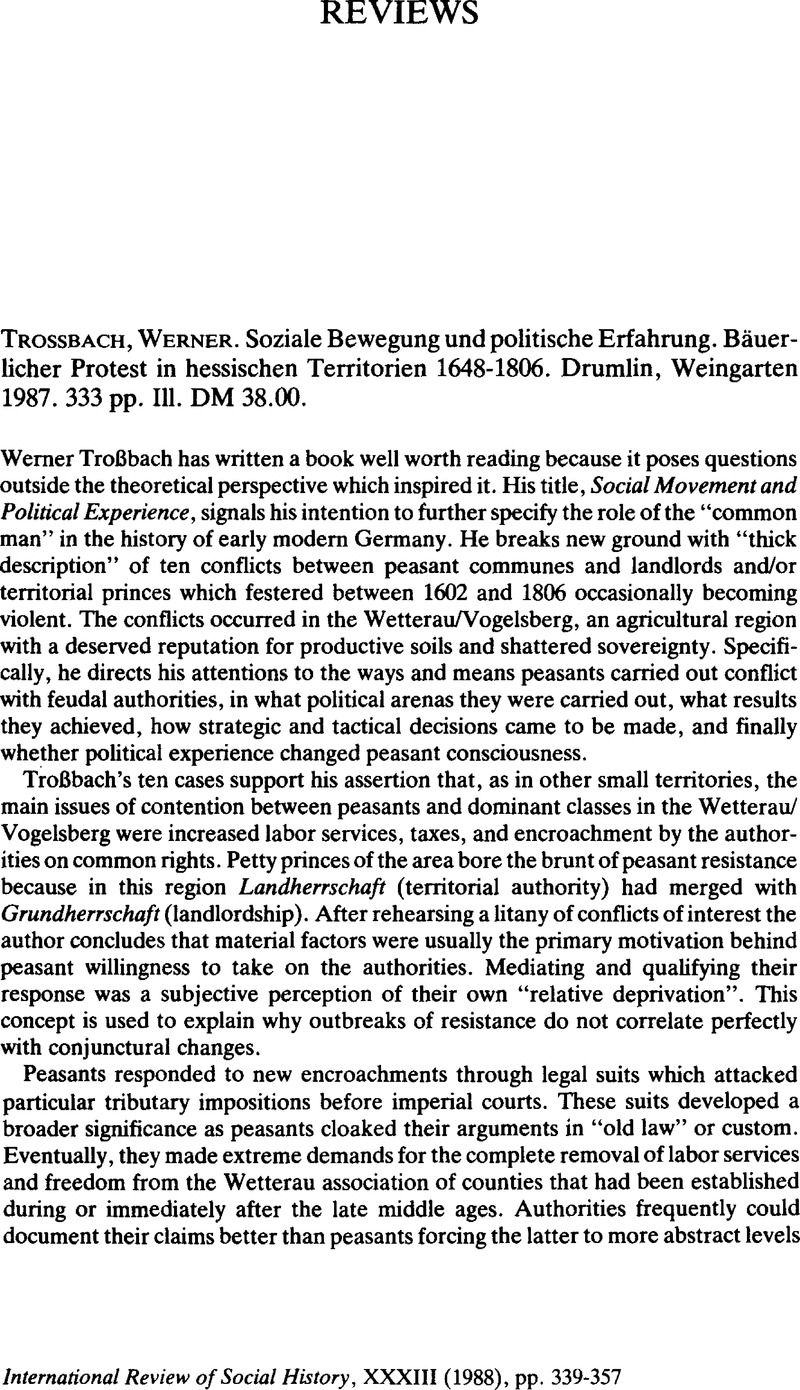No CrossRef data available.
Article contents
Werner Trossbach. Soziale Bewegung und politische Erfahrung. Bäuerlicher Protest in hessischen Territorien 1648–1806. Drumlin, Weingarten1987. 333 pp. III. DM 38.00.
Published online by Cambridge University Press: 18 December 2008
Abstract

- Type
- Reviews
- Information
- Copyright
- Copyright © Internationaal Instituut voor Sociale Geschiedenis 1988
References
1 Hermann, Rebel, “Peasant Stem Families in Early Modern Austria: Life Plans, Status Tactics, and the Grid of Inheritance”, Social Science History, vol. 2, 1978, nr 3, gives us examples of stem family elders wandering far from home using the resources of the estates already passed on to their heirs as a basis for adventure, financial and political speculation during the Thirty-Years-War. It seems as if the deputies are using the lawsuits in very similar ways.Google Scholar
2 Peter, Keir Taylor, “The Household's Most Expendable People: The Draft and Peasant Society in 18th Century Hessen-Kassel”, unpublished Ph.D. diss., University of Iowa, 1987,Google Scholar and George, Thomas Fox, “Studies in the Rural History of Upper Hesse”, unpublished Ph.D. diss., Vanderbuilt University, 1976, both find substantial evidence for the formation of a peasant elite as the 18th century progressed. The formation of the elite appears to be based both on property relations and on control of village offices which increased substantially in number until later in the 18th century when villages began to complain about the cost.Google Scholar




